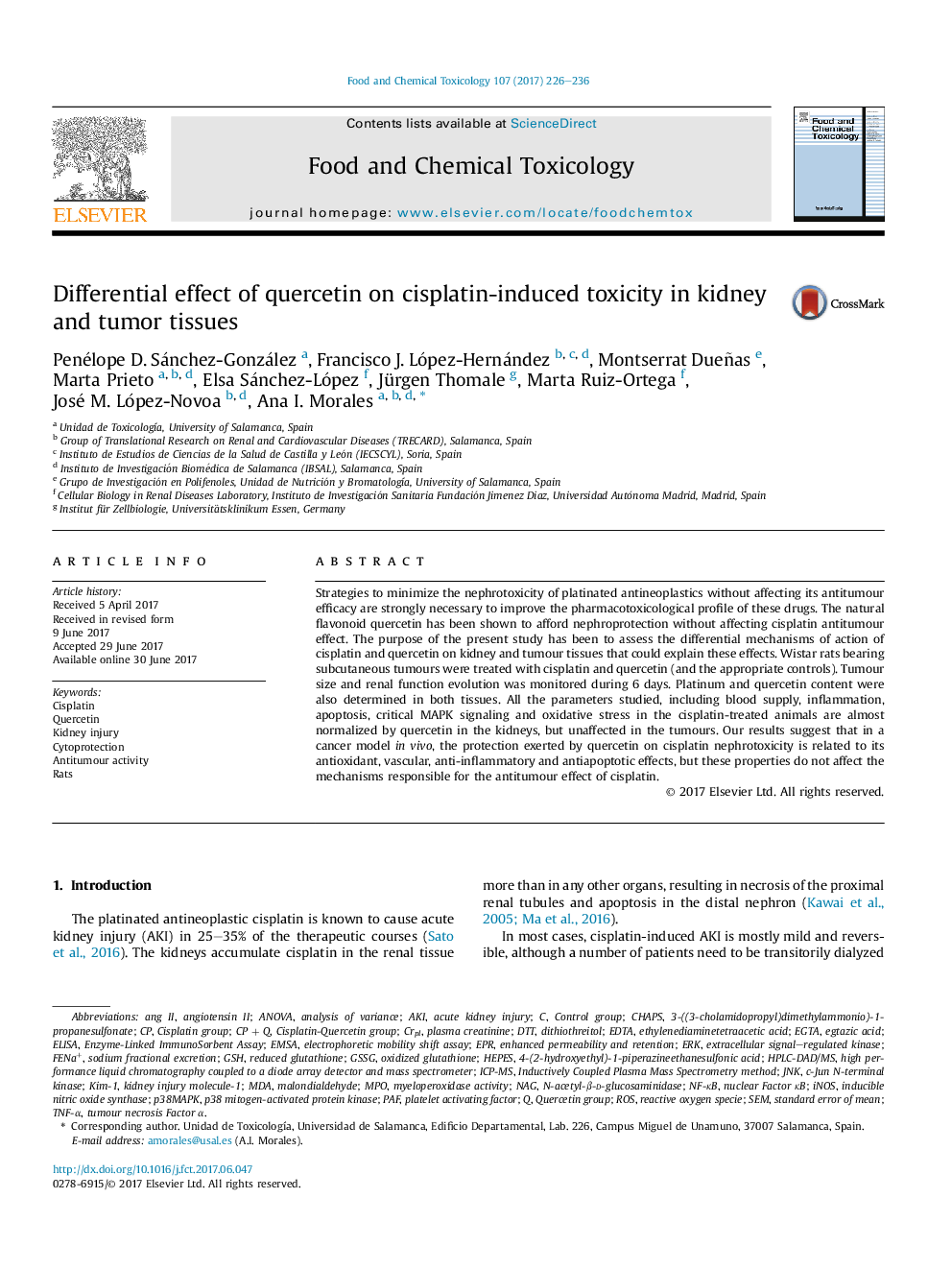| Article ID | Journal | Published Year | Pages | File Type |
|---|---|---|---|---|
| 5560077 | Food and Chemical Toxicology | 2017 | 11 Pages |
â¢Quercetin reduces cisplatin nephrotoxicity without affecting its anti-tumour activity.â¢We studied possible mechanisms involved: antioxidant, vascular, anti-inflammatory and antiapoptotic.â¢These mechanisms are involved in quercetin nephroprotection.â¢These mechanisms are not affected by quercetin in the tumour.
Strategies to minimize the nephrotoxicity of platinated antineoplastics without affecting its antitumour efficacy are strongly necessary to improve the pharmacotoxicological profile of these drugs. The natural flavonoid quercetin has been shown to afford nephroprotection without affecting cisplatin antitumour effect. The purpose of the present study has been to assess the differential mechanisms of action of cisplatin and quercetin on kidney and tumour tissues that could explain these effects. Wistar rats bearing subcutaneous tumours were treated with cisplatin and quercetin (and the appropriate controls). Tumour size and renal function evolution was monitored during 6 days. Platinum and quercetin content were also determined in both tissues. All the parameters studied, including blood supply, inflammation, apoptosis, critical MAPK signaling and oxidative stress in the cisplatin-treated animals are almost normalized by quercetin in the kidneys, but unaffected in the tumours. Our results suggest that in a cancer model in vivo, the protection exerted by quercetin on cisplatin nephrotoxicity is related to its antioxidant, vascular, anti-inflammatory and antiapoptotic effects, but these properties do not affect the mechanisms responsible for the antitumour effect of cisplatin.
Graphical abstractDownload high-res image (155KB)Download full-size image
